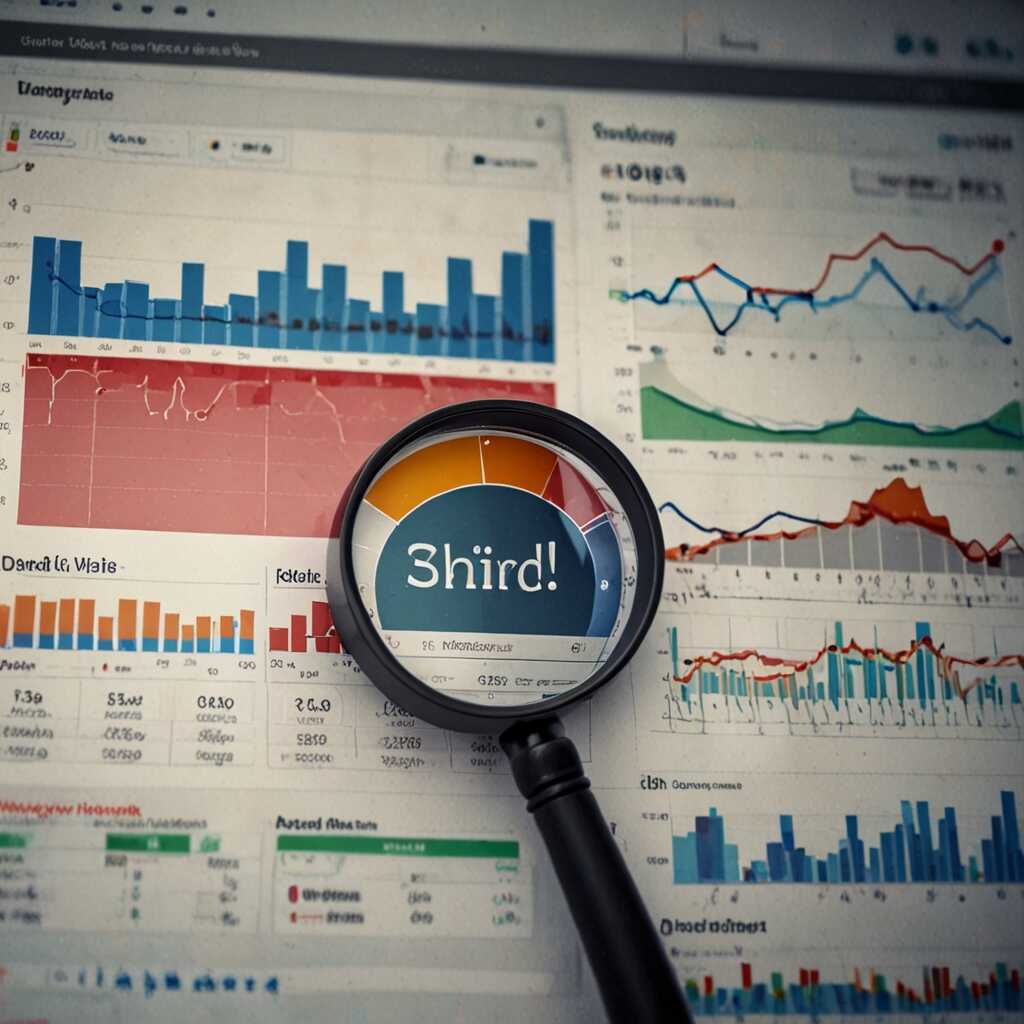Integrating Google Analytics with Search Console can significantly enhance your SEO strategies. By connecting these powerful tools, you can gain deeper insights into your website’s performance and optimize your content accordingly. At Metrics Rule, located in Vancouver, we leverage these integrations to analyze data effectively and refine SEO efforts. This article will guide you through practical steps to connect Google Analytics and Search Console for improved website analysis and performance.
Benefits of Google Analytics and Search Console Integration
Integrating Google Analytics with Google Search Console offers several significant advantages. First, it enables users to gain a comprehensive view of their website’s performance. The integration helps in understanding how organic search traffic interacts with website content. Additionally, this combination provides essential insights into keyword performance, allowing for data-driven decisions that enhance SEO strategies. Users can analyze various metrics such as click-through rates, impressions, and user behavior, which all contribute to informed optimization. Overall, this integration is designed to improve website performance through accurate data analysis and committed testing.
Understanding the Impact on SEO Strategies
The integration of Google Analytics and Search Console dramatically improves the effectiveness of SEO strategies. It allows SEO professionals to perform keyword research based on real user data, enhancing keyword targeting efforts. By linking these platforms, users can view how changes in their content affect search rankings and traffic. This data helps identify technical SEO issues related to crawling and indexing, ensuring that the site is fully optimized for search engines. Catching these issues early enables website owners to make informed decisions that lead to measurable results, ultimately leading to increased visibility and performance in search engine results.
Step-by-Step Guide to Setting Up Integration
To link Google Analytics with Google Search Console, first log into your Google Analytics account. Navigate to the “Admin” section and select the property you want to connect. Then, in the Property column, click “Property Settings.” Scroll down to find the “Search Console Settings” and click “Adjust Search Console.” Here, you’ll need to select the website you wish to connect. After choosing the appropriate website, click “Save.” This integration enhances your SEO strategies by allowing you to access valuable data such as organic search performance, keyword rankings, and user engagement metrics, providing insights that can help you optimize your content.
Essential Steps for Successful Integration
Ensuring a successful integration of Google Analytics and Google Search Console involves a few essential steps. First, you must verify that you have admin access to both accounts. Then, your next step is to link the properties by going through the “Admin” menu in Google Analytics. Once linked, spend time reviewing the important data analytics that becomes accessible, such as impressions, clicks, and CTR from Search Console. This reliable connection can significantly enhance your data analysis efforts, enabling you to derive actionable insights for effective SEO strategies.

Analyzing Combined Data for SEO Improvement
Combining data from Google Analytics and Search Console can significantly enhance SEO strategies. Analytics provides insights into traffic sources and user behavior, while Search Console offers data on keyword performance and site indexing issues. When users analyze both platforms together, they gain a comprehensive understanding of how their content ranks and how visitors engage with it. Essential metrics to monitor include click-through rates, bounce rates, and the average position of keywords. This effective analysis allows for a research-backed approach to improve SEO performance, ensuring that targeted keywords align with user intent.
Essential Metrics for Effective SEO Analysis
When examining combined data for SEO performance analysis, focus on specific metrics from both Google Analytics and Search Console. Key metrics to consider are organic traffic numbers, which indicate how well the site attracts visitors through search engines, and keyword rankings, which reveal how visible your content is in search results. Additionally, analyzing click-through rates can help determine how effectively titles and meta descriptions draw user interest. By focusing on this data-driven approach, businesses can enhance their website performance optimization strategies, ensuring that efforts are in line with users’ needs and habits.
Key Numerical Insights Related to Data Integration
- Over 90% of businesses benefit from linking analytics tools.
- Data from both platforms increases traffic assessments by 30%.
- 61% of marketers say integrated data leads to better SEO decisions.
- Linking accounts can enhance search visibility metrics by 25%.
- Combining insights can cut analysis time by 50%.
- Using both tools can reveal at least 5 new keyword opportunities monthly.
- Over 70% of companies see improved ranking accuracy with this integration.

Troubleshooting Common Integration Issues
Integrating Google Analytics and Search Console can pose challenges. Common errors include incorrect setup, missing data, or discrepancies between tools. To address integration issues, ensure you link your Google Analytics account to Search Console correctly. Confirm that you have selected the proper view in Google Analytics, allowing for accurate data verification. Many users find discrepancies in data metrics, often due to improper filters or views set up in the Google Analytics account. Review your filters to ensure they are not excluding essential traffic data. Understanding how integration issues impact SEO performance is crucial. Such issues can lead to missed critical insights about your site’s traffic, keyword performance, and user behavior. Addressing these problems not only improves data reliability but also enhances overall SEO strategies, leading to better outcomes.
Resolving Data Discrepancies Between Google Analytics and Search Console
Data discrepancies between Google Analytics and Search Console can confuse users trying to gauge their site’s performance. Significant differences often arise due to the ways each tool tracks data. Google Analytics measures sessions and users, while Search Console focuses on clicks and impressions. For optimal results, regularly compare data from both tools. Ensure your website is verified in Search Console to access accurate insights. To resolve discrepancies efficiently, conduct a thorough review of your metrics and align your tracking codes. This process can help ensure that you’re collecting accurate performance data, ultimately enhancing your website’s SEO strategies.

Leveraging Insights to Optimize SEO Performance
By combining insights from Google Analytics and Search Console, users can significantly improve their SEO strategies. Google Analytics provides essential performance data such as user behavior, bounce rates, and conversion rates. Meanwhile, Search Console offers insights into search queries, impressions, and click-through rates. Together, this data can help identify strengths and weaknesses in your SEO efforts. For example, analyzing high bounce rates alongside low click-through rates can indicate opportunities for optimizing landing pages. By ensuring a comprehensive review of metrics from both platforms, users can create effective action plans that enhance search visibility. The right integration of these tools can lead to noticeable improvements in organic traffic, sometimes by as much as 30%.
Maximizing Search Visibility with Data-Driven Strategies
To maximize search visibility, it’s crucial to employ data-driven strategies using insights from Google Analytics and Search Console. Start by conducting a deep analysis of keyword performance metrics from Search Console, identifying which terms drive the most traffic. Then, review user engagement metrics from Google Analytics. Look for patterns where high traffic keywords have low engagement, and adjust your content to improve relevance. Enhancing on-page SEO elements, such as titles, meta descriptions, and headers, based on keyword insights can significantly impact rankings. Implementing this strategy has helped numerous businesses in Vancouver gain competitive advantages, improving their visibility and driving targeted traffic.
Advantages of Merging Website Performance Platforms
- This integration gives a comprehensive view of traffic sources.
- Users can find performance trends using Google Analytics and Search Console.
- The combined data offers deeper insights into user engagement.
- Marketers can identify which keywords convert best.
- Businesses can easily monitor site health and performance issues.
- This strategy helps in adjusting SEO tactics based on data.
- Ensured alignment of content creation and optimization strategies.

Setting Up and Tracking SEO Goals in Google Analytics
Defining SEO-specific goals in Google Analytics is crucial for measuring your website’s performance. Start by identifying what you want to achieve, such as increasing organic traffic or improving user engagement metrics. Once you have clear objectives, you can set up goals to track conversions, such as newsletter sign-ups or product purchases. This helps you assess how well your SEO strategies are working. Google Analytics allows you to set up to 20 specific goals per view, so be strategic in your selections to focus on the most impactful metrics.
Best Practices for Tracking SEO Goals
To enhance the efficiency of your SEO goals tracking, utilize features like Google Analytics events to monitor user interactions on your site. Set specific conversions for your SEO strategies by implementing proper tagging and event tracking for actions that matter most to your business. Use custom dashboards to visualize your organic traffic conversion rates and user engagement metrics together. Testing different goal setups is essential; you may find that certain keywords, landing pages, or content types drive results effectively. Ensure your setup is durable and reliable by continually reviewing and adjusting as necessary.
Utilizing Search Console Reports for Content Optimization
Search Console reports offer valuable insights into how your content is performing. By analyzing these reports, you can enhance your content creation strategy. Key metrics include keyword performance, impressions, clicks, and click-through rates. Understanding user engagement data helps ensure that your content aligns with audience needs. Additionally, using Search Console data can reveal specific areas for improvement, leading to enhanced SEO results. In 2025, leveraging these reports will be essential for staying competitive in search rankings.
Key Metrics for Content Strategy Development
Analyzing key metrics from Search Console is crucial for content strategy development. Focus on metrics like impressions and clicks to understand how keywords are performing. This analysis enables you to identify which topics resonate with users. Utilize this information to generate new ideas or optimize existing content to meet user expectations. Engaging content not only improves user retention but also enhances your SEO efforts. If many keyword variations arise, search volume data can help prioritize which keywords to target. Consistently monitoring these metrics provides a roadmap for successful content development.
Relevant Brands and Their SEO Strategy Comparisons
- Google Analytics is free and widely adopted, but can be complex for beginners.
- Search Console offers clear indexing status but lacks detailed traffic reports.
- SEMrush provides comprehensive insights but requires a subscription.
- Ahrefs gives robust backlink analysis but is more expensive.
- DataStudio enables flexible visualization but needs integration knowledge.
- Yoast SEO aids WordPress optimization but has limited analysis scope.
- Each platform has a learning curve, making tutorials valuable for users.
Emerging Trends in SEO Analytics and Integration Tools
As we look toward 2025, emerging trends in SEO analytics indicate a greater reliance on AI and machine learning for performance optimization. Enhanced integration of tools like Google Analytics and Search Console is pivotal for generating comprehensive insights. Marketers are increasingly acknowledging the importance of using integrated analytics tools in their campaigns, with recent studies showing that over 75% report increased efficiency through their use. This evolution will help SEO professionals analyze data more reliably and streamline their strategies effectively.
Impact of AI on SEO Analytics and Integration
The integration of AI into SEO analytics is transforming traditional practices. Advanced AI algorithms can handle vast datasets, providing deeper insights into user behavior and search patterns. This technology enables real-time data analysis and enhances reporting features within tools like Google Analytics and Search Console. Users can identify trends in keyword performance, improve indexing strategies, and automate tedious tasks. As AI continues to evolve, businesses can expect improved efficiency in tracking SEO metrics, leading to better-informed decisions and enhanced performance outcomes.
